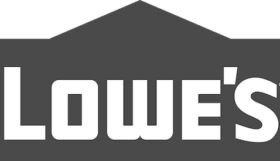FCC Hits Marriott for Blocking WiFi
 The FCC has hit Marriott Hotels with a $600,000 fine for blocking hotel guests personal WiFi signal.
The FCC has hit Marriott Hotels with a $600,000 fine for blocking hotel guests personal WiFi signal.
This the first time the FCC has investigated a hotel chain for blocking the Wi-Fi signals of its guests. According to a senior FCC official the Marriott wasn’t “jamming” in the traditional sense where some technology is used to jam or block wireless signals. In this case employees of Marriott used the hotel’s own Wi-Fi system to block other people’s hot spots.
The FCC investigation focused on the Gaylord Opryland Resort and Convention Center in Nashville. It was found that Marriott employees used “containment features of a Wi-Fi monitoring system” at the hotel to prevent guests from using their personal Wi-Fi devices.
It is against federal law to interfere with cellular, GPS or wireless networks.
“Consumers who purchase cellular data plans should be able to use them without fear that their personal Internet connection will be blocked by their hotel or conference center,” FCC Enforcement Bureau Chief Travis LeBlanc said in a statement.
As a result of the FCC investigation and findings Marriott Hotels will no longer block guests’ Wi-Fi at any of the properties it owns and manages. Marriott Hotels must also file compliance plans with the FCC every three months for three years.
“It is unacceptable for any hotel to intentionally disable personal hot spots while also charging consumers to use the hotel’s own Wi-Fi network,” LeBlanc said. “This practice puts consumers in the untenable position of either paying twice for the same service or forgoing Internet access altogether.”
Marriott issued the following statement Friday afternoon defending its actions:
“Marriott has a strong interest in ensuring that when our guests use our Wi-Fi service, they will be protected from rogue wireless hot spots that can cause degraded service, insidious cyber-attacks and identity theft,” the statement said. “Like many other institutions and companies in a wide variety of industries, including hospitals and universities, the Gaylord Opryland protected its Wi-Fi network by using FCC-authorized equipment provided by well-known, reputable manufacturers.
“We believe that the Opryland’s actions were lawful. We will continue to encourage the FCC to pursue a rulemaking in order to eliminate the ongoing confusion resulting from today’s action and to assess the merits of its underlying policy.”
Breaking it down
Make that money! Who hasn’t been to a hotel where you are charged for everything? Some hotels are better than others. Some offer free breakfast or free cable and even free WiFi. The fact that the Marriott was caught blocking your signal is not surprising and its probably something they have been doing for a while. The complaint that sparked the investigation was filed on 2013. And we are just now hearing about it. What I want to know is if Marriott has to refund the money to guests that paid for WiFi service that they had no choice but to buy? And does anybody really believe that $600,000 is going to hurt a major corporation like Marriott Hotels? I understand the profit incentive but to deny a customer the use of their own property and force them to buy your service? C’mon, I thought Marriott was better than that. Seems I was wrong about another major corporation. Imagine that.






